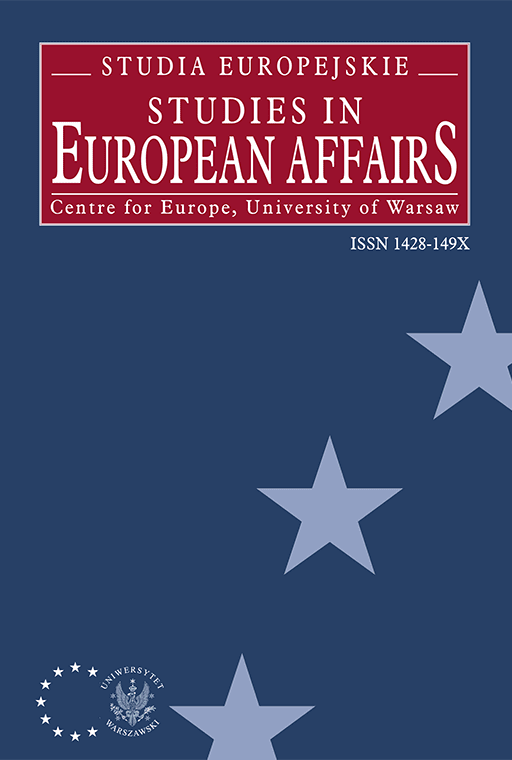
ISSUE: 3/2013
- Volume 67
- Number 3
- 2013
Subscribe NEWSLETTER
Studia Europejskie –
Studies in European Affairs
ISSN: 1428-149X
e-ISSN: 2719-3780
License
Articles published in the journal are under a Creative Commons Attribution – Non Commercial – No Derivatives 4.0 International License
Instrumenty zarządzania kryzysem w obszarze polityki budżetowej w Unii gospodarczej i Walutowej
Crisis Management Instruments in the Area of Fiscal Policy in the EMU
Abstract
Before 2008, the establishment of the euro area was estimated as one of the most important achievements of the European Union. Unfortunately the world economic crisis has revealed its weakness, including the structure and the functioning of the European Central Bank and the whole system, as well as unsatisfactory results of the process of coordination of economic policy in EU. It also aroused the discussion not only on the future of the Economic and Monetary Union, but also on the future of the whole European Union. The main aim of the article is to analyse the most important instruments of the EU financial regulatory system in managing the financial crisis in the EU. The first part of the article focuses on different attitudes to monetary and budget policies in the EMU and the nature of the instruments established before 2008 to support their coordination. Another part of the article covers the most important issues connected with the background of the crisis in the euro area and the new financial regulatory instruments, such as the European Stability Mechanism or the Fiscal Compact, which were established after 2008. In addition, in order toshow the main trends which will take place in the EU in the nearest future, the final part of the article focuses on presenting four scenarios for the euro area.
Language: Polish
Pages: 87-114
How to Cite:
Harvard
Latoszek, E. and Sacharski, K. (2013) "Instrumenty zarządzania kryzysem w obszarze polityki budżetowej w Unii gospodarczej i Walutowej". Studia Europejskie – Studies in European Affairs, 3/2013, pp. 87-114.